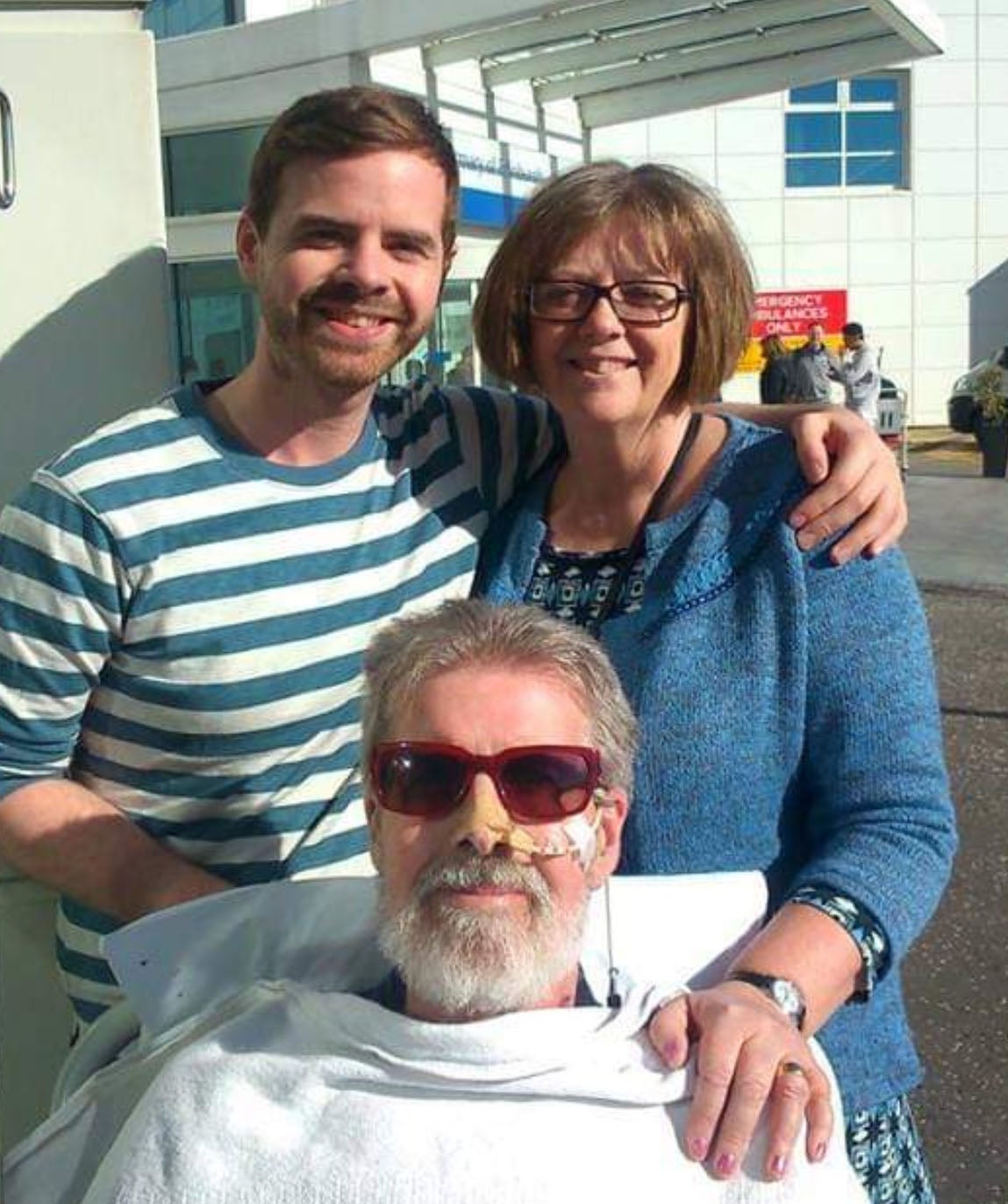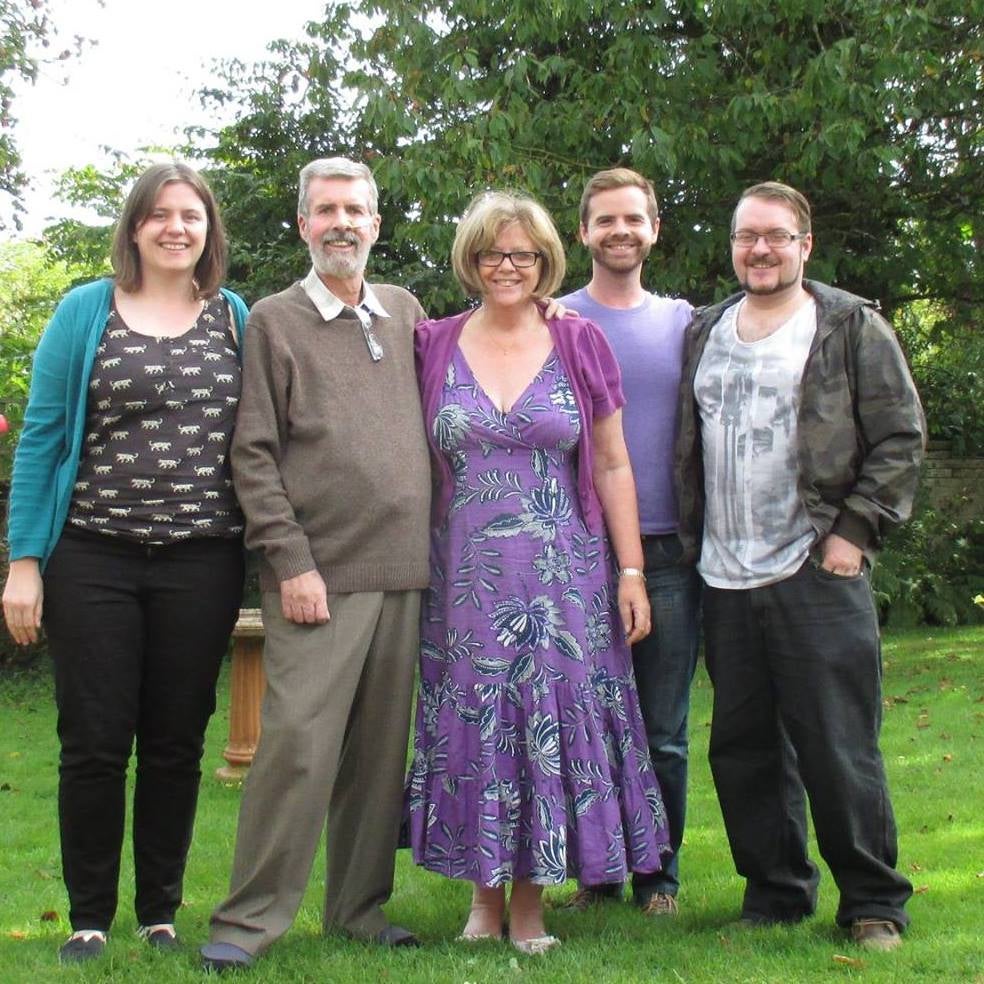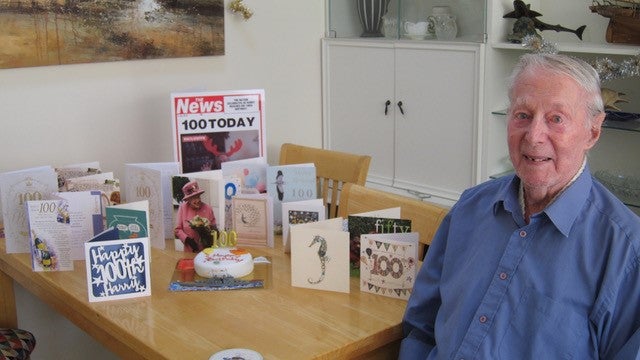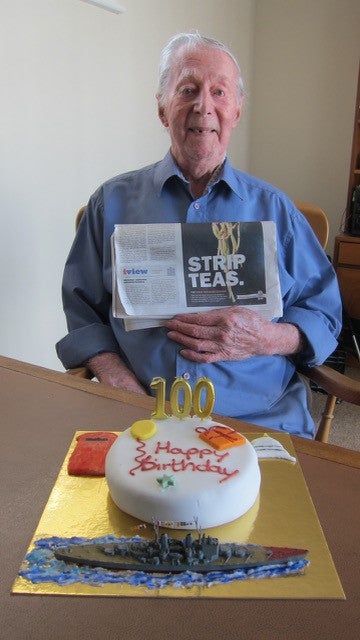‘He didn’t want to linger’: Families who saw loved ones suffer demand a better choice with assisted dying bill
Kevan Donoghue passed away after three weeks of being unable to eat or drink due to a blockage in his stomach

Your support helps us to tell the story
From reproductive rights to climate change to Big Tech, The Independent is on the ground when the story is developing. Whether it's investigating the financials of Elon Musk's pro-Trump PAC or producing our latest documentary, 'The A Word', which shines a light on the American women fighting for reproductive rights, we know how important it is to parse out the facts from the messaging.
At such a critical moment in US history, we need reporters on the ground. Your donation allows us to keep sending journalists to speak to both sides of the story.
The Independent is trusted by Americans across the entire political spectrum. And unlike many other quality news outlets, we choose not to lock Americans out of our reporting and analysis with paywalls. We believe quality journalism should be available to everyone, paid for by those who can afford it.
Your support makes all the difference.Watching the last three weeks of her husband’s life convinced Patricia Donoghue that patients should have a right to choose how they die.
A former nurse from Glasgow, Patricia had taken early retirement with her husband Kevan, hoping that they would have more time to holiday and see friends and family.
Tragically, just two years later, Kevan was diagnosed with bile duct cancer in 2013.
The assessment had initially been hopeful, with Kevan managing to return to his local choir after surgery, but by the winter of 2014 he was deteriorating. By March 2015 he was transferred to a hospice for end of life care and the last three weeks of his life were “agony for him and for us watching him,” Patricia said.
His liver was failing and he had developed a bowel blockage, likely a secondary cancer, that he was too frail to have investigated or removed. As a result Kevan wasn’t able to be treated and he wasn’t able to ingest food or water. All nurses could do for him was to give him a small amount of tea that would pass through his mouth, and then run down a tube and into a bag - leaving him dehydrated with just the taste to savour.
Patricia, who has now turned 70, explained: “There was very little that anyone could do. He didn’t have anything to eat or drink for three weeks. He starved to death really and he also had intractable pain. It was a very upsetting end and I know he would have opted for a quicker death if he had the choice.

“He didn’t want to linger, he hated what was happening to him, and having no control. Throughout your life you have control over most things but you don’t have control over how you go.”
She continued: “I would walk into Kevan’s room and it would stink of ketones - which has a very distinctive smell like pear drops. It was because he was so dehydrated and it was so noticeable in the whole room.
“We went into the last three weeks being told every day that this could be the day he dies and that continued for three weeks.”

On the day of Kevan’s death, Patricia was at home getting something to eat and her sister was sitting with him in the hospice. His condition deteriorated rapidly, and sadly she didn’t get back to see him one final time.
“I could have been there,” she says. “I’ve felt guilt for a long time about that. It was a dreadful ending to a horrible time and had it been in a more controlled way we could have been with him. I really wanted to be with him when he passed away, but I wasn’t.”
Patricia is hopeful that MPs will vote in favour of an assisted dying bill on Friday that would allow patients with six months left to live to be assisted to take their own lives.
Under the bill, these patients would have to get approval from two doctors and a High Court judge to end their life.
Opponents of the bill have questioned whether the NHS or the judicial system have capacity to properly deal with the numbers of people who would want an assisted death, or warned of a “slippery slope” if the legislation is made law.
But proponents say the bill has sufficient safeguards and would allow people to have a say in their death.
Referring to the current bill, Patricia explained: “It’s for people who know they are going to die and who would want to choose not to linger in intractable pain or lose their dignity. At the end of the day it would be a choice, and it’s been proved that it’s a choice that people want.”
Bryan Grayson, from West Sussex, also wants that choice for himself - having witnessed difficult deaths of both his mother and his father-in-law. His father-in-law Harry Moore was 102 when he died in June 2022.
“Just after his 102nd birthday he had a bad fall necessitating calling out the paramedics. They put him into bed with minor cuts but that was the tipping point for him. The next day he was adamant that he wanted to die and the only way he could do it was by starving himself to death which he fully intended to do”, Bryan explained.

A former royal marine, Harry was fiercely independent and had also witnessed his wife Rosie die a slow death from cancer around 20 years before. It took him about eight weeks to pass away after that decision - a process that caused “unnecessary pain and anguish”, Bryan said.
“At the end of the day you make life-changing decisions all your life, why then should this be removed at the end of your life,” he added.
Bryan’s mother Mavis Corkindale died of lung cancer in 2016, after a painful final few months in a hospice. Bryan was able to be with her when she passed away but his brother Paul was not.

“The only thing that she wanted was to die at home with me and my brother by her side and that didn’t happen. I can understand the dangers of a new law and the need for safeguards, but the current law as it stands is just crazy,” he argued.
Trevor Moore, Chair of My Death, My Decision, a campaign group in favour of assisted dying, said: "These stories powerfully underscore the urgent need for a compassionate assisted dying law in the UK. Many individuals in the UK have the distress of facing either a potentially drawn-out, painful death or travelling far from home for a dignified one.
“Our current system is heartless and cruel. We urge politicians to recognise that any system that forces people to suffer is a broken system. We therefore encourage them to do the right thing and vote in favour of Kim Leadbeater’s assisted dying bill on the 29th November."
Join our commenting forum
Join thought-provoking conversations, follow other Independent readers and see their replies
Comments